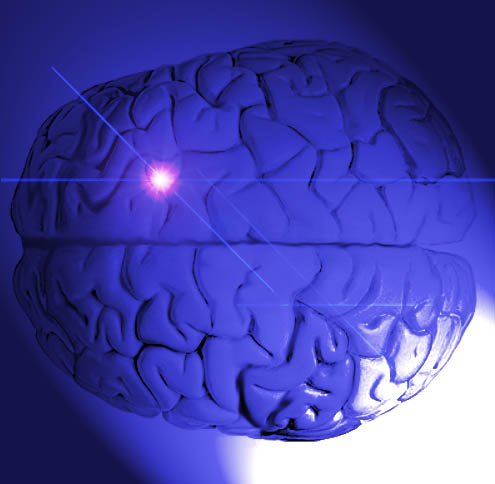ICREA
Eduard Torrents receives the ICREA Academia programme distinction
IBEC researcher Eduard Torrents has been awarded the ICREA Academia distinction by the Catalan Institute for Research and Advanced Studies (ICREA). The head of IBEC’s Bacterial Infections: Antimicrobial Therapies group received the award in the Life and Health Sciences category.
Pere Roca-Cusachs receives ICREA Acadèmia program distinction for the second time
IBEC researcher Pere Roca-Cusachs has been awarded the “ICREA Academia” distinction by the Catalan Institution for Research and Advanced Studies (ICREA). The leader of IBEC’s Cellular and Molecular Mechanobiology group received the award in the Life & Medical Sciences category.
Elisabeth Engel and Gabriel Gomila receive the ICREA Acadèmia grant
IBEC researchers Elisabeth Engel and Gabriel Gomila have been awarded the “ICREA Acadèmia” distinction by the Catalan Institution for Research and Advanced Studies (ICREA). Engel and Gomila, who lead their … Read more
Marino Arroyo, associated researcher at IBEC, honoured with an ICREA Academia award
The Catalan Institution for Research and Advanced Studies (ICREA) recognizes the excellent research of Professor Marino Arroyo, who wins for the third time the ICREA Academia award. Over the next five years he will receive a grant in recognition of the research excellence done in his laboratory to continue developing research projects on mechanobiology.
Javier Ramón, new ICREA professor at IBEC
 Javier Ramón, Group Leader of the “Biosensors for Bioengineering” group at IBEC, has been appointed new Research Professor at the Catalan Institution for Research and Advanced Studies, ICREA. Currently IBEC hosts 8 ICREA Professors out of 22 group leaders.
Javier Ramón, Group Leader of the “Biosensors for Bioengineering” group at IBEC, has been appointed new Research Professor at the Catalan Institution for Research and Advanced Studies, ICREA. Currently IBEC hosts 8 ICREA Professors out of 22 group leaders.
Since last April 1, Dr. Javier Ramón, Group Leader at IBEC, has become part of the ICREA Research Professors community. ICREA is a foundation funded by the Catalan Government aimed at recruiting the most extraordinary and talented international scientific researchers. With this appointment, IBEC hosts 8 ICREA Professors and 2 ICREA Academia (UB affiliated professors), one of the highest numbers among all research centres in Catalonia.
Molecules activated by light to control glutamate receptors
 Researchers at IBEC, IQAC-CSIC and CNRS have developed molecules that can modulate the activity of glutamate receptors in the central nervous system, with important applications in biomedicine.
Researchers at IBEC, IQAC-CSIC and CNRS have developed molecules that can modulate the activity of glutamate receptors in the central nervous system, with important applications in biomedicine.
For the last few years the collaborators have been working on the development of molecules called targeted covalent photoswitches (TCPs), whose structure can be changed using light. This change in shape causes the molecule to be recognized – or not – by a biological receptor as a key is to a lock. This coupling activates the receptor or not, triggering the activity.



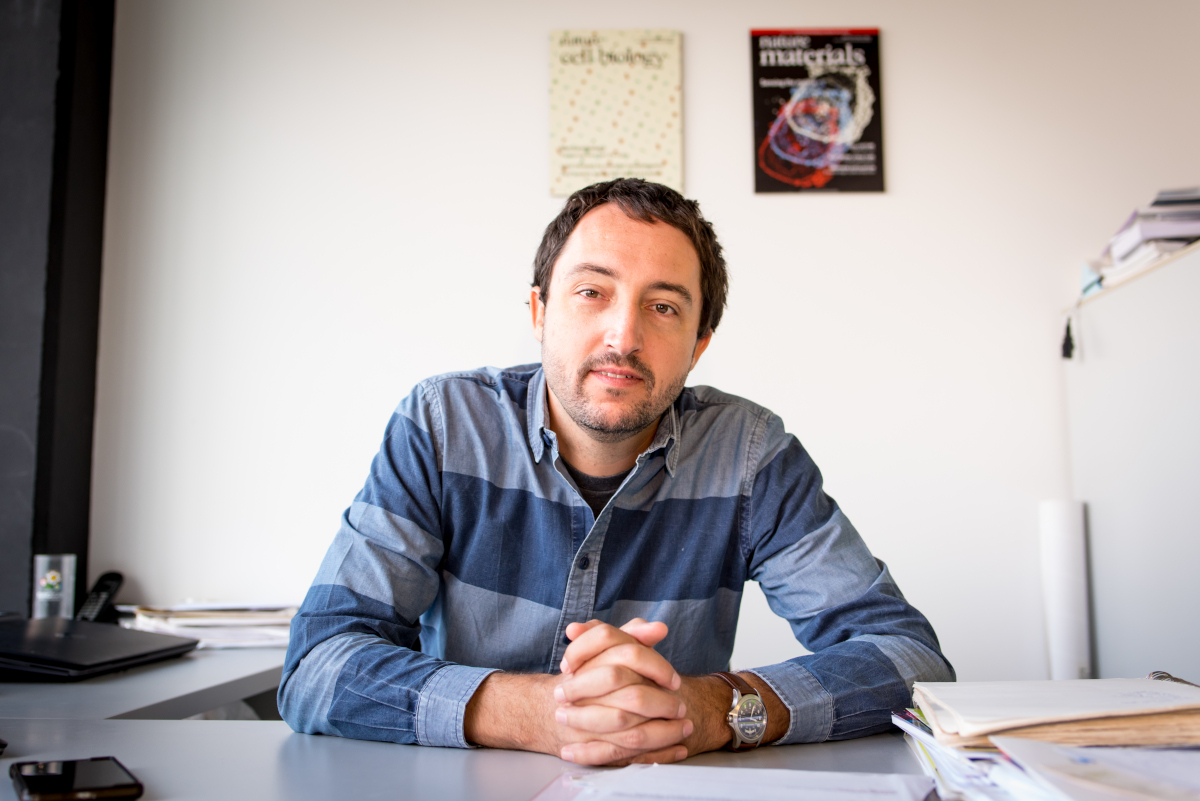
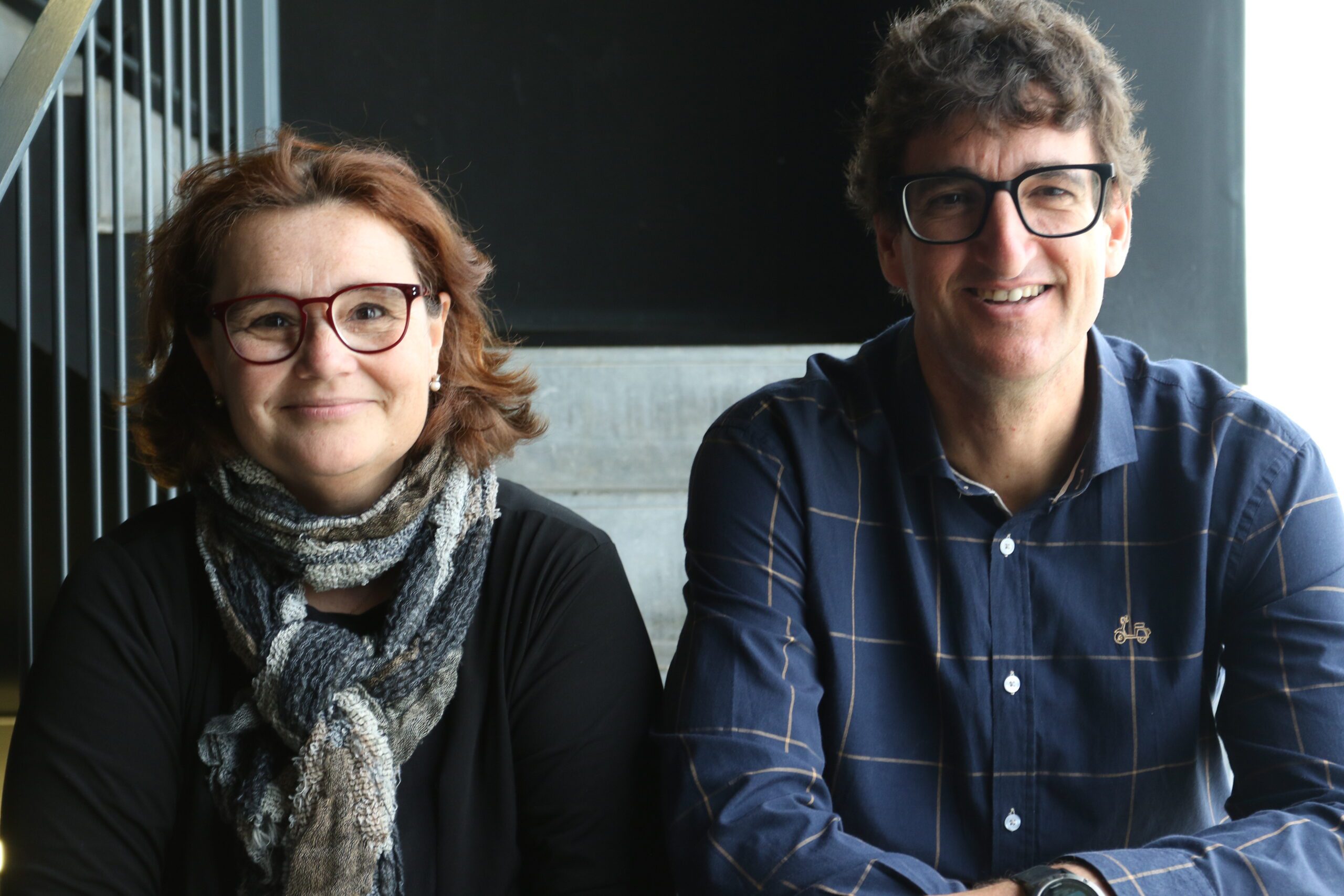

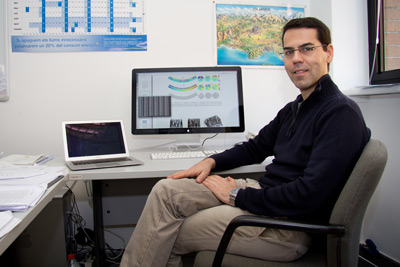
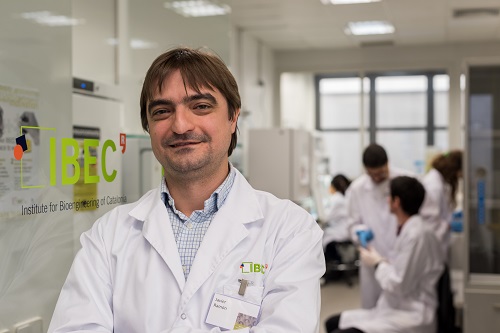
 Javier Ramón, Group Leader of the “Biosensors for Bioengineering” group at IBEC, has been appointed new Research Professor at the Catalan Institution for Research and Advanced Studies, ICREA. Currently IBEC hosts 8 ICREA Professors out of 22 group leaders.
Javier Ramón, Group Leader of the “Biosensors for Bioengineering” group at IBEC, has been appointed new Research Professor at the Catalan Institution for Research and Advanced Studies, ICREA. Currently IBEC hosts 8 ICREA Professors out of 22 group leaders.